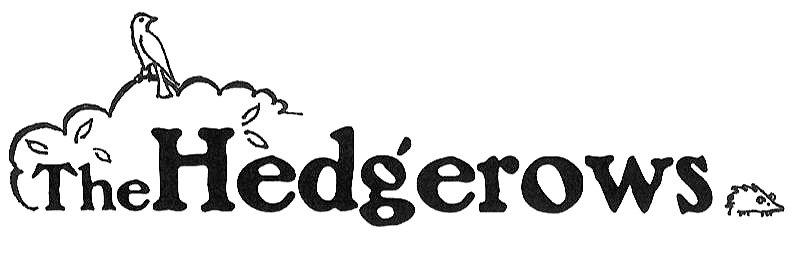Hedgerows Kids
Curriculum
Preparing Young Learners for the Challenges of the 21st Century. Education today requires that children need to master content while producing, synthesizing, and evaluating information from a wide variety of subjects and sources all with an understanding of and respect for diverse cultures. While learners at The Hedgerows demonstrate the traditional “three Rs,” they also exhibit the three Cs: creativity, communication, and collaboration. They possess digital literacy as well as civic responsibility. At The Hedgerows, learners are encouraged to develop a mindset of curiosity while pursuing different areas of interest. Curriculum is theme focused with a different theme chosen by the community each term. Core skills such as math, reading/writing, and foreign language are practiced daily, along with work on individual or group independent projects. Younger learners are given two recesses in addition to unstructured time at the beginning and end of the day.
The Arts are Everywhere
In a small learning environment, we value the ability to integrate the arts into the total curriculum rather than segregate them in special rooms. We view them as much more than a means of expression, although that is certainly one important aspect of an arts curriculum. The act of creating is a means for assessment, communication, and an essential vehicle for documenting information, especially for right brain learners who process information better through drawings than words. The arts give learners of all ages an opportunity to use higher level thinking skills when they apply knowledge in different creative ways.
Leadership and Collaboration Begins at the Youngest Ages
Younger children are capable of taking the small steps that begin leadership and collaboration. Whether that is helping a friend to find something or suggesting a game to play while out at recess, it leads to more empathy and confidence.When they are at higher learning levels, they can choose to be a ‘big buddy’ responsible for a younger partner at the beginning of the day and end of the day. They might be peer partners for a STEM exercise or a leader of a multi-age project learning team. By the time learners have progressed through the program, they are ‘team leaders,’ facilitating after-care programs, coordinating all-school teams, or leading community meetings. We expect them to be the leaders — our representatives to the local community, should they choose to accept that responsibility.
Learning Maps Vary
At The Hedgerows, we recognize that everyone is different. Each learner comes with his/her/their own learning map developed by the range of experiences each has had. They are not all in the same place in their learning, even at the same age, so the most effective teaching approach is not to give everyone the same information at the same time, but rather individualize lessons to meet each learner where they are. At The Hedgerows where educators are learning advisors, we view our job as that of opening many different doors for different learners. With our guidance, each must learn what best fits his/her/their needs at a given point in time, and learn the best approach for accessing it just as the advisors learn what works best with each individual child. The daily and frequent dialoguing that goes on between learners and advisors as they “check-in” throughout the day is probably the single most important vehicle for learning that goes on at The Hedgerows. During these one-on-one conversations, learners are able to reflect on their work because advisors might ask questions to help clarify what was meant, give new directions, assign a mini-lesson to emphasize a specific skill, or present a new challenge — whatever best serves the learner at that moment. Gone are the days when learners receive a grade and that’s that. At The Hedgerows, we follow most pieces of work to its end — one that reflects the abilities of each child, not the same expectation for everyone.
Kids Make a Difference
Learning the importance of giving back to one’s community as well as feeling the satisfaction of doing something for someone else is an integral part of our curriculum as it is in many other learning environments. Each experience makes a difference in different ways, but one of the most special aspects is making the decision together as a community.
Reflection Enhances Thinking
Part of being a good student in life is the ability to reflect on one’s thinking and learning. With the guidance of advisors, learners reflect via writing and/or sharing throughout the process while working on important projects. Reflection that answers questions about the process and outcomes deepens understanding and solidifies learning.



